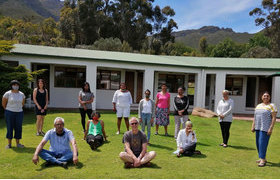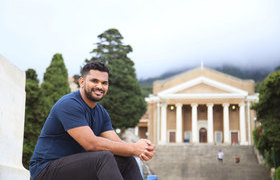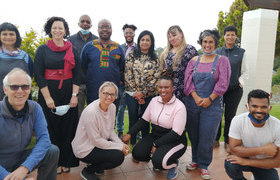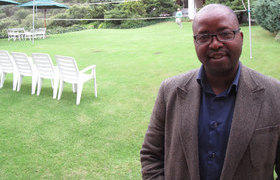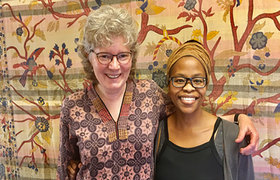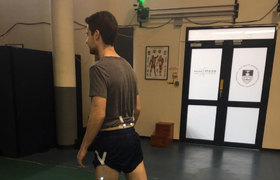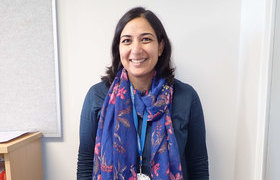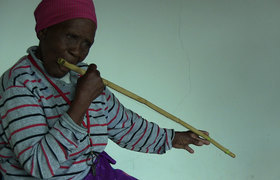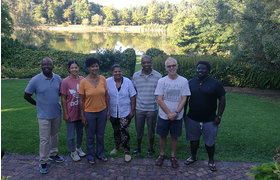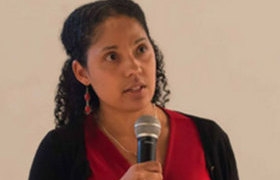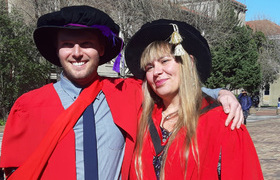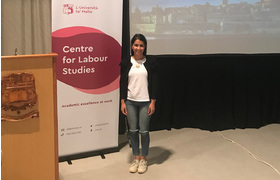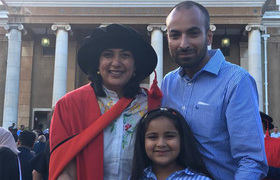Authentic leadership for changing times
24 June 2016 | Story by Newsroom
Members of the Next Generation Professoriate will be future leaders at UCT. In order to prepare them for this role, Vanessa Lowndes of the T Room recently facilitated three afternoon-long conversations that focused on leading teams and building organisational culture in changing times.

Vanessa completed her studies at UCT before starting a career as an activist for adult learning in 1997. She worked extensively as an adult learning design specialist and now focuses her work in the development sector.
Over a three-month period, Vanessa engaged in a set of conversations with members of the cohort. Initially they were introduced to the notion of leadership and how it relates to the day-to-day management of tasks and people. How do we get teams to align to an overall vision, with commitment and sustainability, while carrying out their individual duties?
 Kate le Roux (CHED) and Sylvia Bruinders (Music).
Kate le Roux (CHED) and Sylvia Bruinders (Music).This was followed by a session on self-awareness. One can only make good leadership choices if one is self-aware! Finally, there was a session on situational leadership. It is critical to be able to read a situation and to understand what is needed and which leadership strategy is most appropriate. Leadership cannot rely on a one-size-fits-all approach because every person has her or his own authentic leadership style.
Changes in the institutional culture are a major goal of transformation. Although these are notoriously difficult to identify, decision-making processes are often important either in creating buy-in of academic staff or in alienating them. Leaders have the responsibility of making decisions, particularly ones that will affect many other people, so it is important for them to have a good understanding of how best to make decisions.
 Sharon Kleintjes (Psychiatry) and Jennifer Moodley (Public Health).
Sharon Kleintjes (Psychiatry) and Jennifer Moodley (Public Health).The Recruitment, Development and Retention (RDR) Policy identifies a number of elements as key for transformation. Investing in future leaders contributes to these goals by giving people time to reflect, and building skills that will enable good situational analysis and the best possible leadership decisions.
The course provided cohort members with theoretical frameworks which will help to align authentic leadership styles to the needs of the people they lead. This will contribute to a healthy institutional environment. The course also gave the cohort an opportunity to establish relationships that are critical to building a united and properly aligned leadership culture. Strong leadership drives morality and motivation.
 Tracy Gutuza (Commercial Law) and Waheeda Amien (Public Law).
Tracy Gutuza (Commercial Law) and Waheeda Amien (Public Law).At the conclusion of the course, members of the cohort shared their reflections. Their keen interest to apply the theoretical models to their own situations was both encouraging and 'gritty'. They got stuck in! They applied their 'new lenses' to 'not-so-new' situations, and this, in many instances, helped them to identify alternative possibilities.
Vanessa reflected: “When you see people deep in thought, nodding quietly to themselves, and then a broad smile of self-knowingness slowly spreads across their face, you know the intervention is probably going to make a difference.”
 This work is licensed under a Creative Commons Attribution-NoDerivatives 4.0 International License.
This work is licensed under a Creative Commons Attribution-NoDerivatives 4.0 International License.
Please view the republishing articles page for more information.
Next Generation Professoriate (NGP)
The Next Generation Professoriate (NGP) is a mid-career academic staff development and support programme. Funded by the vice-chancellor’s Strategic Funds, the NGP addresses demographic inequalities in the academic hierarchy. The goal is to help members become associate and full professors.
The NGP was officially launched in September 2015. By the end of 2018, four of its members had been promoted to full professor and a further 14 had reached the rank of associate professor.
The programme is led by Dr Robert Morrell, who has over 35 years of academic experience in South African universities. He has a B1-rating from the the National Research Foundation (NRF) and is an elected member of the Academy of Sciences in South Africa.
Newsletters
In the news

